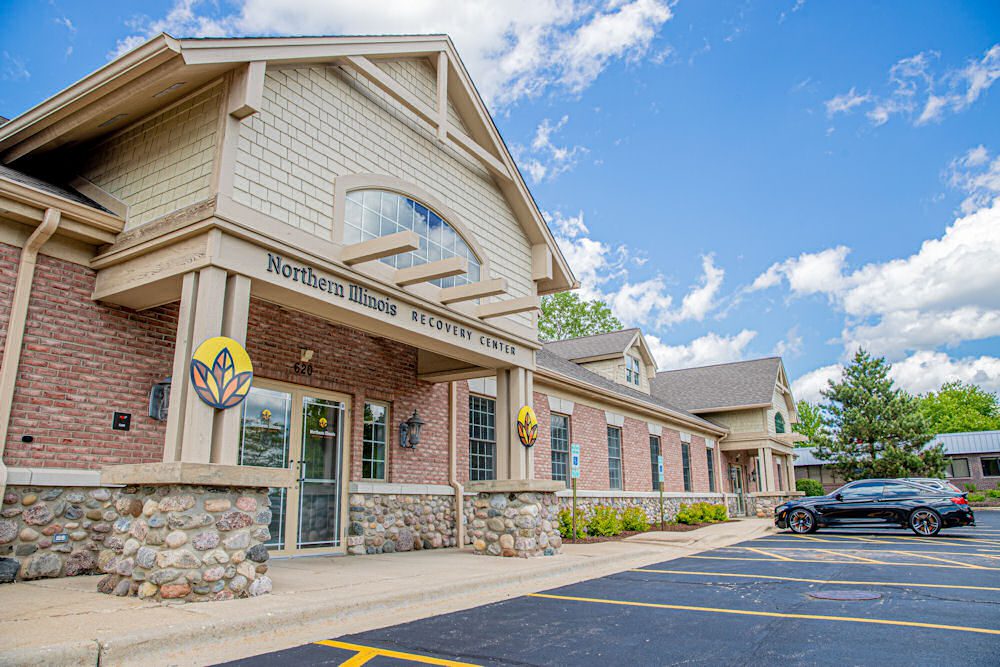If you have developed a substance use disorder that involves the drug OxyContin, Northern Illinois Recovery Center offers life-changing substance abuse treatment programs. We help people from all across the US, as well as local residents who live in the surrounding areas, including McHenry, Lake, Cane, and Page Counties.


The journey often begins with drug and alcohol detoxification, a critical first step in managing withdrawal symptoms of prescription painkillers safely and effectively. This phase is closely monitored to guide individuals through the challenging withdrawal phase of recovery from OxyContin dependency. Because OxyContin withdrawal symptoms are highly dangerous, we always recommend individuals seek guidance through detox.
For those facing moderate to severe substance use issues, residential treatment provides a structured environment with 24/7 care. Programs can last anywhere from 30 to 90+ days, offering a blend of therapeutic interventions to address the complexities of addiction.
PHP serves as a bridge for individuals who need a high level of care but cannot commit to a full residential program. It offers a structured treatment environment during the day without the need for overnight stays.
Recommended for clients with moderate addiction or mental health issues, the IOP allows individuals to receive intensive care while maintaining their daily responsibilities. This program is suitable for those transitioning from higher levels of care or as a starting point for those with less severe addictions.
The outpatient program involves counseling sessions 2-3 times a week, providing ongoing support and therapy to help individuals manage their recovery while integrating back into their everyday lives. Treatment centers like Northern Illinois Recovery often use outpatient programs as a continuation of care following an inpatient stay.
Sober living programs offer a supportive environment to reintroduce structure into the lives of individuals continuing their recovery journey. This option is ideal for those seeking a transitional living situation that fosters sobriety and personal growth. Physical dependence on OxyContin, or other opiates can be extremely difficult. This is why sober living programs and continued care really helps within the addiction treatment process.
Northern Illinois Recovery Center emphasizes personalized treatment, recognizing the unique challenges faced by individuals with opiate abuse issues. This includes dual diagnosis treatment for those experiencing co-occurring mental health issues, like bipolar disorder, depression, or anxiety, ensuring a comprehensive approach to recovery. The center also caters to specific populations, including women, men, young adults, seniors, and individuals struggling with gambling addiction, tailoring programs to meet diverse needs.
By offering a spectrum of care levels and specialized treatment plans, Northern Illinois Recovery Center aims to provide effective, evidence-based treatment for individuals battling OxyContin abuse, facilitating a path towards recovery and long-term wellness.
What You Need to Know About OxyContin
OxyContin, like other opioids, makes chemical changes in your brain. It affects your brain’s center that controls pain and pleasure. This helps alleviate severe pain, such as that of end-stage cancer. It also slows down your respiration and breathing to help you relax and feel better. When taken other than directed, accidental overdose can result.
Over time, your body builds up a tolerance to OxyContin. This means you have to take higher and higher dosages to get the same result. At the wrong dosage, OxyContin can suppress your respiratory system completely. Your heart can stop beating. This reason, alone, is enough to consider an OxyContin addiction rehab center in Northern Illinois.
Insurance Verification




OxyContin Abuse and Effects
- Euphoria: Due to its opioid properties, OxyContin can produce feelings of euphoria, especially when taken in higher doses than prescribed.
- Respiratory Depression: High doses can significantly slow breathing, which can be life-threatening and lead to hypoxia—a condition where not enough oxygen reaches the brain.
- Constipation: Like other opioids, OxyContin can slow the digestive system, leading to constipation.
- Nausea and Vomiting: These are common side effects, particularly when initiating use or after taking a high dose.
- Physical Dependence and Tolerance: With regular use, individuals may develop a tolerance, needing more of the drug to achieve the same effect. Physical dependence can also occur, leading to withdrawal symptoms if the drug is reduced or stopped abruptly.
- Addiction: OxyContin use can lead to addiction, characterized by the compulsive use of the drug despite harmful consequences.
- Mood Swings: Users may experience mood swings, including bouts of depression or anxiety.
- Impaired Cognitive Function: Abuse can lead to difficulties with attention, memory, and decision-making.
- Relationship Issues: The focus on obtaining and using OxyContin can strain relationships with family and friends.
- Employment Problems: Performance at work or school may suffer, potentially leading to job loss or academic failure.
- Legal Issues: Obtaining OxyContin illegally or doctor shopping (visiting multiple doctors to obtain multiple prescriptions) can lead to legal consequences.
Risks of OxyContin Abuse
Long-term abuse of OxyContin can also lead to more severe health issues, including liver and kidney damage, increased risk of heart attack, and mental health disorders.
Given the high potential for abuse and addiction, it’s crucial for individuals prescribed OxyContin to take it exactly as directed by their healthcare provider and for healthcare providers to monitor their patients closely for signs of misuse.
The Opioid Crisis in America
If you’re using OxyContin or any other opioid drug in a way other than it was prescribed for you, now is the time to seek help from an OxyContin addiction rehab center such as the Northern Illinois Recovery Center.


About Our OxyContin Drug Rehab Programs in Illinois
When you choose treatment at the Northern Illinois Recovery Center, you’ll have access to the best evidence-based substance abuse therapies available for substance use disorder, including:
- Medication-assisted treatment programs (MAT)
- Individual therapy programs
- Group therapy programs
- Family therapy programs
- Cognitive-behavioral therapy
- Dual diagnosis treatment programs
When you’re ready to seek treatment for OxyContin dependency, or for any other substance use disorder, the Northern Illinois Recovery Center stands ready to help. We’ll lay the groundwork for a sober foundation and help you build a better, drug-free tomorrow. Give us a call today for more information about our OxyContin rehab center in Northern Illinois.




